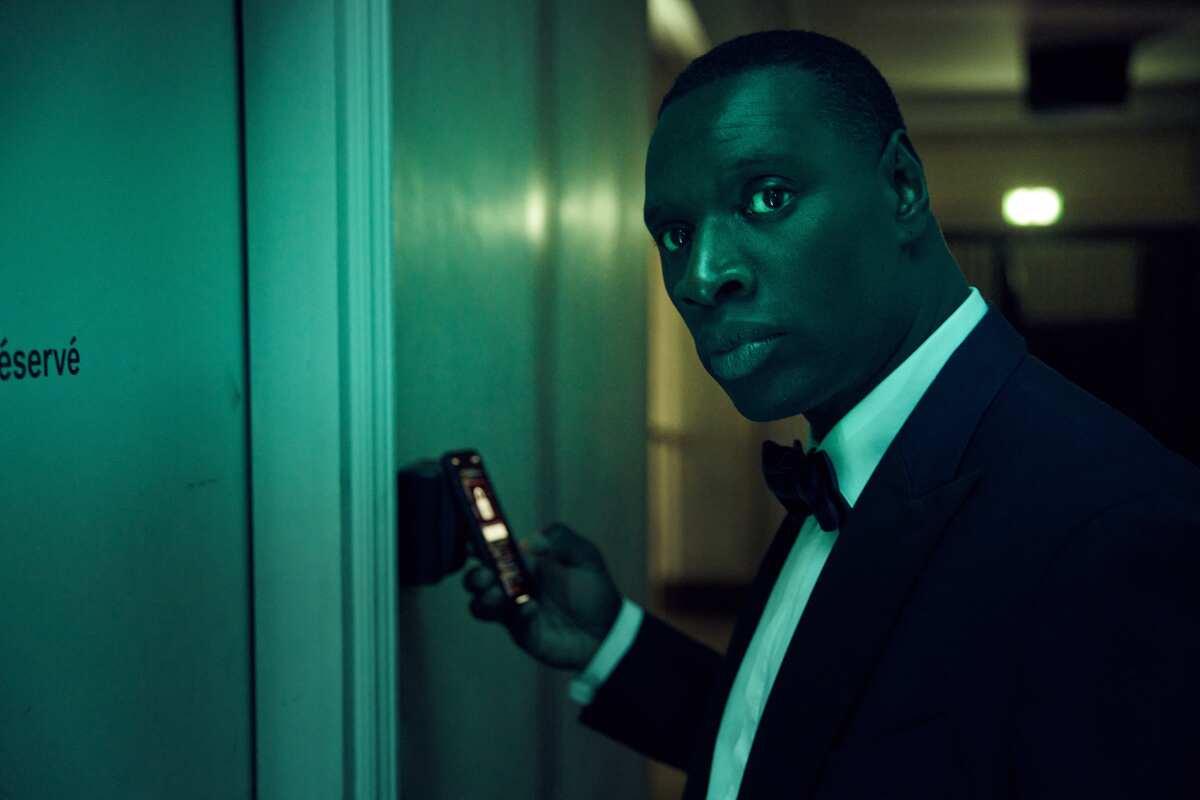In Netflix’s ‘Lupin,’ a new hero avenges Europe’s racist past: The immigrant worker

The following contains major spoilers from “Lupin” Part 2.
When the highly anticipated second part of the French series “Lupin” arrived on Netflix this month, its gentleman thief, Assane Diop (Omar Sy), proved that his dazzling acts of criminality weren’t a one-hit wonder.
Dressed in a sleek tuxedo one minute and a workman’s dumpy jumpsuit the next, this master of disguise infiltrated opulent Paris mansions, charity fundraisers and police headquarters with equal skill and pizzazz to avenge the wrongful conviction and death of his father. A hardworking Senegalese immigrant, Dad was framed for the theft of a diamond necklace by dastardly billionaire Hubert Pellegrini (Hervé Pierre) when Diop was a child — and, we learn, was subsequently murdered in jail, a crime that was made to look like a suicide.
Between the charms of star Omar Sy and its vengeful play on “gentleman thief” Arsène Lupin, the action drama’s viewers may find themselves in binge mode.
In the course of unraveling that case, Diop saved his own son, Raoul (Etan Simon); a dog named J’accuse; and a children’s charity, all without killing a soul. (The same can’t be said of Pellegrini’s henchmen, who took out intrepid investigative journalist Fabienne Beriot, played by Anne Benoît, in Part 1.) Diop also created his own spy technology — a resourcefulness that makes 007 look like a corporate shill — and maintained an effortless cool in his Jordan Retro 1’s and a long black trench coat, even while folding his huge frame into a tiny crawlspace like human origami.

But what really makes me look forward to Part 3 of “Lupin,” confirmed this spring by Sy himself, is watching this dashing burglar repurpose the systemic bigotry and classism that made his young life so rough. He was maligned at his majority-white school and mistrusted by adults. Now Diop has actually earned his place on France’s most wanted list after his efforts to out Pellegrini, yet he’s able to hide in plain sight thanks to his skin tone: He blends in with the invisible underclass of immigrant workers who make Paris run. No one of import ever looks at the trash collector, the maid, the cook or the hotel staff unless they need something. It’s the perfect cloak of invisibility.
“Lupin” is a wholly contemporary adaptation of an early 20th century figure from French novelist Maurice LeBlanc. Readers kept up with the breathtaking adventures of the caped antihero Arsène Lupin in LeBlanc’s book series, to which Diop’s father introduced him at a young age. Once orphaned, Diop found inspiration in the adventures of the great escape artist, and the series’ second installment flashes back and forth in time over its five episodes to draw connections between Diop’s feelings of powerlessness as a child and his outfoxing of authorities now.
Critic Lorraine Ali writes of seeing her immigrant upbringing in the San Fernando Valley reflected in the Mindy Kaling Netflix comedy ‘Never Have I Ever.’
Immigrants getting the job done is not, however, a “theme” in “Lupin” emphasized simply to make a point. It just is, woven through the series in ways large and small. Among the sizable team of inspectors and police chasing the elusive Diop, the only one astute and patient enough to work out that these crimes — a missing diamond necklace, a mysterious break-in at the station — are somehow connected to the story of Lupin is Youssef Guedira.
Youssef’s background is never stated explicitly, but he’s played by French Algerian actor Soufiane Guerrab. One illustration of his battle against French racism comes when he and Diop squeal into town in pursuit of a kidnapper and end up face to face with a bunch of unfriendly, red-faced locals in a Normandy bar.
The two men end up uniting against a larger corrupting force — call it the privilege of wealth, systemic racism, the legacy of French colonialism or all of the above — and watching each other’s backs, despite coming into the picture from different sides of the law.

“Lupin” became an international hit almost by mistake. It’s not a huge Hollywood thriller, and there’s nary a gunfight compared with any given hour of the bloodbath that is American scripted crime. Diop uses his brain more than his fists. Credit the charm of performer Omar Sy with bringing this unlikely protagonist to life and infusing him with a depth that goes beyond the usual tough-guy-seeking-revenge narrative. Inequity played a devastating role in Diop’s life, but he’s learned from a century-old master burglar how to level the playing field.
A warning to the power brokers of Paris: “Lupin” Part 3 is coming. Hide your priceless jewels and dirty secrets, and never ever underestimate the help.
‘Lupin’
Where: Netflix
When: Any time
Rating: TV-MA (may be unsuitable for children under the age of 17)
More to Read
The complete guide to home viewing
Get Screen Gab for everything about the TV shows and streaming movies everyone’s talking about.
You may occasionally receive promotional content from the Los Angeles Times.







